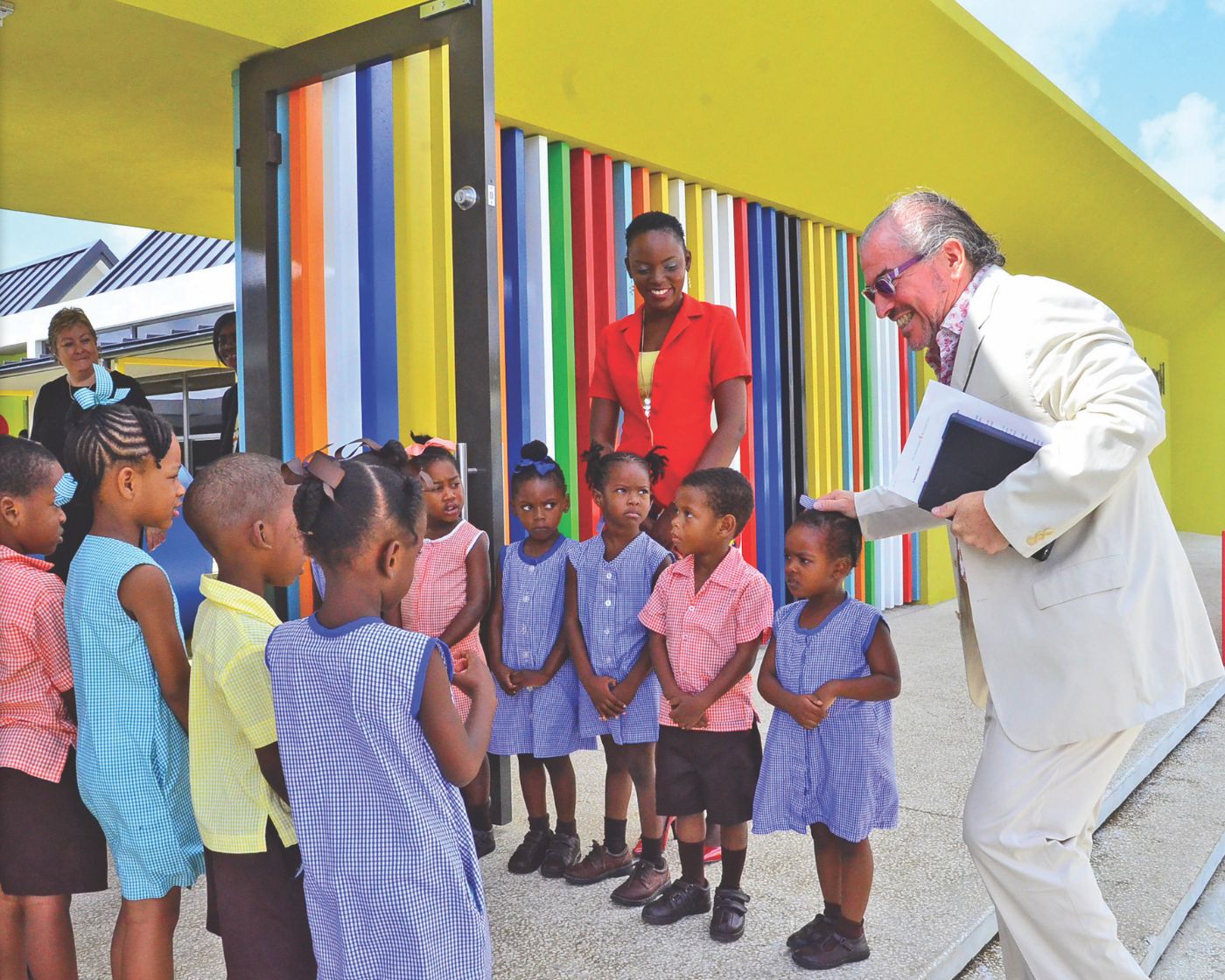-15.jpeg)
Introduction
In the last 20-years especially, Barbados has been the beneficiary of major philanthropic investment in areas of growing social needs: health, including mental health/addiction treatment, support for persons with disabilities, relief for and development of the indigent and underprivileged, protection of the environment, education of children, youth entrepreneurship development, assistance to the elderly, et cetera.
Major contributors include The Maria Holder Memorial Trust, The Sandy Lane Charitable Trust, The Hans Rausing Family Trust, The Barbados Community Foundation and many other individuals and corporations locally and internationally. It is estimated that at least US $100 million has been gifted to the Barbados Third Sector by philanthropists in the last 10-years alone.
At the current time, Government’s resources are constrained and inadequate to support all the growing needs of a Society firmly aspiring to achieve Social Justice. Social Investment in the Third Sector is a priority for any Nation seeking stability and improvements in the quality of life of its people. Fortunately, there are large pools of international capital and support resources available for Third Sector projects that meet the highest standards of performance and measurable impacts.
Defining the Third Sector ‘Third Sector Organisations’ is a term used to describe the range of organisations that are neither public sector nor private sector. It includes voluntary and community organisations (both registered charities and other associations, self-help groups and community groups), social enterprises, mutuals and co-operatives.
Third Sector Organisations (TSOs) generally:
- are independent of government
- are ‘value-driven’, meaning they are motivated by the desire to achieve social goals (for example, improving public welfare, advance economic well-being, or the environment) rather than the desire to distribute profit
- reinvest any surpluses generated in the pursuit of their goals.
As of October 2014, research by the local charity, Aspire Foundation (Barbados) Inc., indicated that there were in excess of 1,000 TSOs registered in Barbados. The research clearly exposed the need for the development of an ‘ecosystem’ that provides the enabling environment for collaborative growth and investment in this important and rapidly growing sector.
Government’s Commitment
The recently elected Government of Barbados recognises the meaningful impact a progressive Third Sector policy might make in helping to meet growing social needs, accelerating entrepreneurship and social impact investing. In addition, it acknowledges that the Third Sector will be instrumental in generating new jobs and foreign exchange, and will contribute to building a more caring society, while serving as a partner in the attainment of the United Nations’ Sustainable Development Goals. Government is committed to establishing and working with a steering committee of Third Sector groups to promote and facilitate the development of a thriving, connected, engaged, energised and effective Third Sector in Barbados, capable of strong social and economic impact and of positioning Barbados as an international centre for Third Sector engagement and collaboration. The United Nations made headlines around the world in September 2015 when it adopted an ambitious set of 17 Sustainable Development Goals (SDGs) that aim to end extreme poverty, protect the planet and ensure health and prosperity for all by 2030. Philanthropy has a critical role to play in achieving the SDGs. It brings not just much-needed money, but also a vast pool of knowledge and willingness of people to support big thinking, innovation, risk-taking and collaboration.
Components of an Enabling Dynamic Philanthropic Ecosystem:
1. The philanthropy knowledge system: The theoretical repository of pertinent data - and expert opinion - that informs, constrains and motivates non-profits, donors and intermediaries.
2. The giving system: The complex network of donors, trustees, institutional advisers, online transaction services and formal philanthropic institutions that originate and/or manage charitable gifts and grants.
3. The non-profit management and reporting system: This includes the process of objective setting, planning, performance tracking and reporting that resides at the heart of every excellent nonprofit organization’s management system.
4. The non-profit evaluation system: The network of auditors, evaluators, accreditors, regulators, experts, information websites, journalists, friends and others who seek to inform, influence, validate and/or protect donors and their decisions.
Ultimately, a high-functioning philanthropy system is one in which non-profits and donors will:
• work from a common knowledge base
• seek consensus around community objectives and collective action
• require consistent reporting by nonprofits that is at once internally valuable for the organization and publicly transparent
• direct resources to organizations that do well the work society values
• demand accountability not only of foundations, trusts and intermediaries, but also of the vast population of individual donors that account for the vast majority of charitable giving.
Local TSOs are currently self-organizing to address their own sustainability and, led by CPDC, are currently developing Third Sector/NGO proposed legislation. Enabling legislation is expected by the end of 2018.

Funding the Third Sector
The creation of a substantive Barbados Third Sector Renewable Energy Investment Fund would provide TSOs with an important and readily accessible source of funding, subject to applicants meeting the standards established for the making of grants. ASPIRE is an example of community philanthropy which provides a route of certification and capacity building for local TSOs. Such a long-term funding resource would provide the platform of financial stability so badly need by TSOs. With the support of EMERA and its Barbados subsidiary, Barbados Light & Power Co. Ltd., and with enabling Government policies and regulations, it is conceivable that within 3-5 years an investment of Bds$100 million can be made in Renewable Energy Infrastructure in Barbados, the profits of which will flow directly to approved TSOs. Other funding streams will continue to flow directly to TSOs from Philanthropic Persons, International Development Agencies, Crowdfunding and Government subventions, as well as from profit-making social investments by TSOs and entrepreneurs.
The Role of the Private Sector is not only relevant in terms of philanthropy, but also helping to sculpt an ‘ease of business’ environment for local TSOs. Possibilities include bringing awareness of the legal environment for social business and more personalized banking services for TSOs. For example, Santander Bank’s ‘Clubs and Charities’ accounts. Incentives for this can include tax breaks et cetera, based on social giving criteria.
Ecosystem Aspiration
The outcomes towards which the development of an ecosystem should aspire have been clearly articulated through research. Specifically, these desired outcomes include:
1. Increasing the volume of philanthropy
2. Improving the sustainability of philanthropy
3. Encouraging more strategic philanthropy
4. Facilitating the adoption of professional practices
5. Generating better knowledge of the scope and work of philanthropy
6. Building skill sets needed to do effective philanthropic work
7. Communicating effectively about the work of philanthropy
8. Working more collaboratively with other organizations
9. Improving the ability of philanthropy to influence policy (particularly in the service of creating an enabling environment for philanthropy)
10. Generating public support and engagement for philanthropy
11. Raising public awareness of the value and impact of philanthropy
12. Encouraging greater transparency of philanthropic practices, particularly with respect to governance and financial accountability.
‘Field-based thinking’, as opposed to ‘organizational-based thinking’, requires a paradigm of collaboration to achieve societal goals that are beyond the competence of any single organization to deliver. It follows that organizations delivering work need to frame their objectives and work programmes based on the needs of the system, rather than narrow organizational goals. The work of any given organization should be based on their comparative advantage, an approach that will minimize duplication and unnecessary competition. This will require models of organization based on sharing. This entails a holistic approach that includes following agreed-upon values and principles, sharing data, reviewing common lessons learned, agreeing on common points.
Conclusion
In Barbados, The Third Sector is growing quickly, enabled by ‘philanthropy’ that comes in many forms from different and diverse stakeholders both locally and internationally. We must now move to higher levels of execution and measurable impact by embracing greater competency, capacity, close collaboration and a commitment to sharing and communicating. Businesses must give time and consideration to measuring their levels of strategic support for Social Investing. Social Investing needs to become part of the ethos and culture of every business. Businesses must move these discussions and decisions beyond short-term marketing considerations to ones based on contributing to long term National Strategic Social Impacts and Societal Stability.
In the same way that business advocates for an enabling business facilitation environment, so too it must support the development of a Third Sector Ecosystem that facilitates the creation of better quality of life and social justice for all.
For Philanthropy and Social Investing to grow and thrive in Barbados, the crafting of a supportive Ecosystem is a critical foundational step.
With thanks for endorsements by Aspire Foundation (Barbado) Inc).
and Christopher Holder, Chairman of The Maria Holder Memorial Trust.







